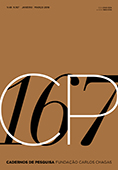Education and alterity in a multicultural society context
Keywords:
Education, Freedom, DemocracyAbstract
The idea of a democratic education in the English context has lost a considerable amount of ground since the 1960s. Here I argue that such is the dominance of neoliberal understandings of education over the Right and much of the social democratic Left that new thinking is required. I begin by considering the view that we have now become so post-democratic that people no longer wish to be free. It is in this context that we may talk about the alterity of democracy. I explore different ideas about how we might seek to link education to ideas of the commons, thereby connecting the idea of education to more participatory notions of citizenship. All of these ideas need to be revived in the context of a state that increasingly controls schools from the center and the dominant rationality of the market.
Downloads
References
FLICKINGER, Hans-Georg. Autonomia e reconhecimento – dois conceitos chave na formaçao. Revista Educação, Porto Alegre, v. 34, n. 1, p. 7-12, jan./abr. 2011.
FLICKINGER, Hans-Georg. Gadamer & a Educação. Belo Horizonte: Autentica, 2014.
HEIDEGGER, Martin. Über den Humanismus. 10. ed. Frankfurt/M.: V. Klostermann, 2000.
HERMANN, Nadja. A educaçao e a questao multicultural: aproximaçoes na perspectiva de Habermas. In: MÜHL, Eldon H.; GOMES, Luiz R.; ZUIN, Antonio A. Soares (Org.). Teoria crítica, filosofia e educação: homenagem a Pedro L. Goergen. Passo Fundo: EDUPF, 2014. p. 225-240.
LEVINAS, Emmanuel. Entre nós: ensaios sobre a alteridade. Petrópolis: Vozes, 2005.
SOUZA NETO, Joao Clemente de et al. (Org.). Pedagogia social. Sao Paulo: Expressao e Arte, 2009.
WEBER, Max. Wirtschaft und gesellschaft. Tübingen: Mohr-Verlag, 1922.
Downloads
Published
How to Cite
Issue
Section
License
Copyright (c) 2018 Cadernos de Pesquisa

This work is licensed under a Creative Commons Attribution-NonCommercial 4.0 International License.
Authors who publish in this journal agree to the following terms:
a. Authors retain the copyright and grant the journal the right to first publication, with the paper simultaneously licensed under the Creative Commons Attribution license that allows the sharing of the paper with acknowledgment of authorship and initial publication in this journal.
b. Authors are authorized to assume additional contracts separately, for non-exclusive distribution of the version of the paper published in this journal (for example publishing in institutional repository or as a book chapter), with acknowledgment of authorship and initial publication in this journal.
c. Authors are allowed and encouraged to publish and distribute their paper on-line (for example in institutional repositories or on their personal page) at any moment before or during the editorial process, as this can generate productive changes, as well as increase the impact and citation of the published paper (See The Effect of Open Access).









